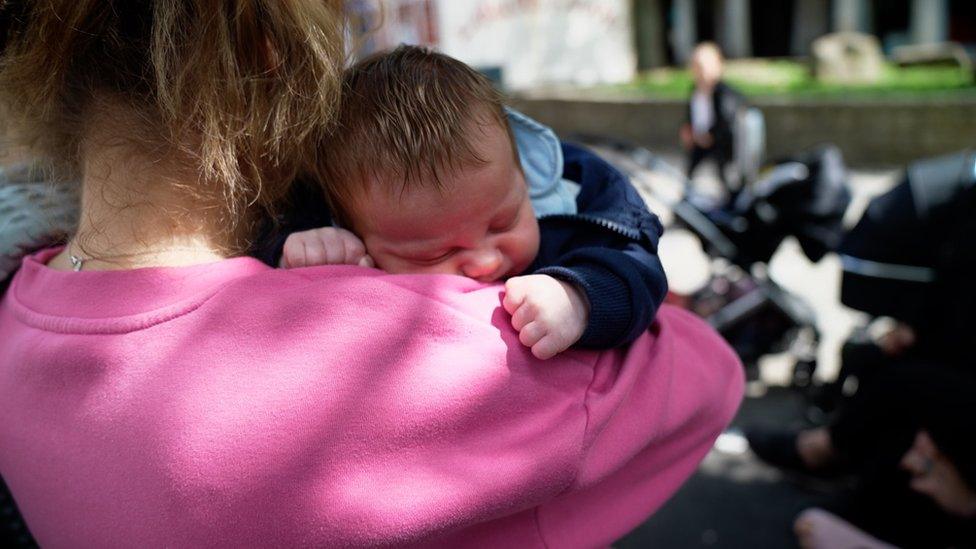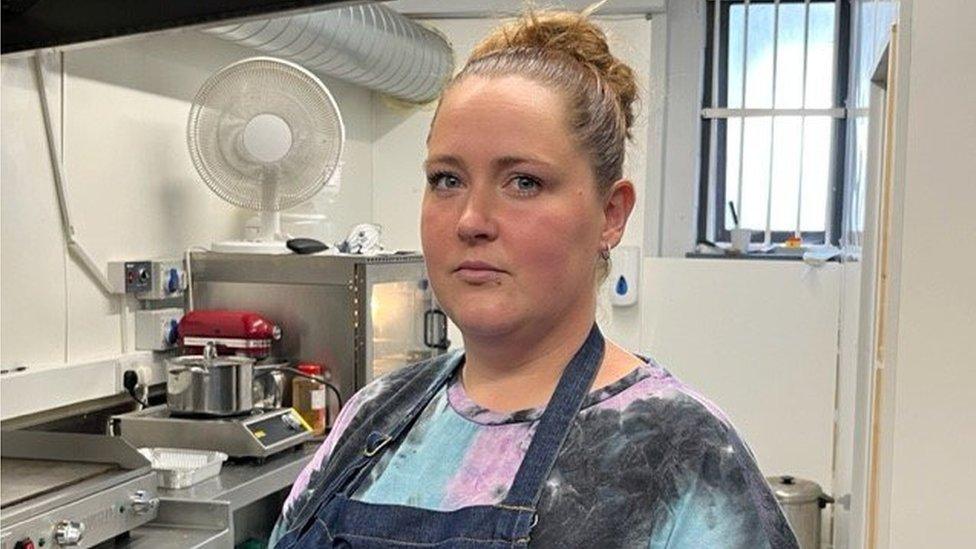Rishi Sunak under pressure from ministers to raise housing benefit
- Published

Rishi Sunak is under pressure from ministers to increase housing benefit amid record numbers of people in temporary housing, the BBC has learned.
Housing Secretary Michael Gove and Work and Pensions Secretary Mel Stride have written to the prime minister and the chancellor demanding an increase in Local Housing Allowance rates.
But the Treasury instead prefers higher universal credit for those in work.
A final announcement is likely in the Autumn Statement later in November.
The number of people in England living in temporary accommodation is at record levels as the cost of living crisis puts market rents out of reach for many households.
The latest government figures, for the three months to June, show 104,510 households were in temporary accommodation, including 131,370 children.
Experts say a major contributory factor is that while rents have soared in recent years, local housing allowance rates, which determine housing benefit levels, have been frozen since 2020.
In June, analysis by the Institute for Fiscal Studies think-tank found just 5% of new private rental properties advertised on Zoopla were covered by local housing allowance rates, the lowest level on record. Official figures show almost two in five private sector tenants receive housing benefit.
More than 150 councils in England wrote to the government last month urging ministers to increase Local Housing Allowance rates to cover at least 30% of local market rates.
Hastings Borough Council fears bankruptcy because of the cost of housing people in temporary accommodation.
Treasury resistance
The BBC understands, however, that the Treasury is resistant to these calls and is instead examining increasing universal credit levels for people in work.
Officials have drafted proposals to cut the "taper rate" - the proportion of earnings people can keep before their benefit payment is cut. The taper rate is currently 55%, meaning that for every pound someone earns above their personal work allowance, their universal credit payment is reduced by 55p.
Changes at the edges of universal credit would not help families who are homeless and do not work, according to the Joseph Rowntree Foundation (JRF) anti-poverty group.
"Reducing the universal credit taper rate is no substitute for addressing a lack of adequacy in the benefits system as a whole," said JRF Chief Economist Alfie Stirling.
"All benefits must increase in line with the higher costs people are facing if the government is serious about helping the worst off," Mr Stirling added.
In a statement, a Treasury official said: "We do not comment on speculation.
"We've maintained our boost of nearly £1bn to Local Housing Allowance, while our Discretionary Housing payments provide a safety net for anyone struggling to meet their rent or housing costs."
- Published20 October 2023

- Published25 July 2023
